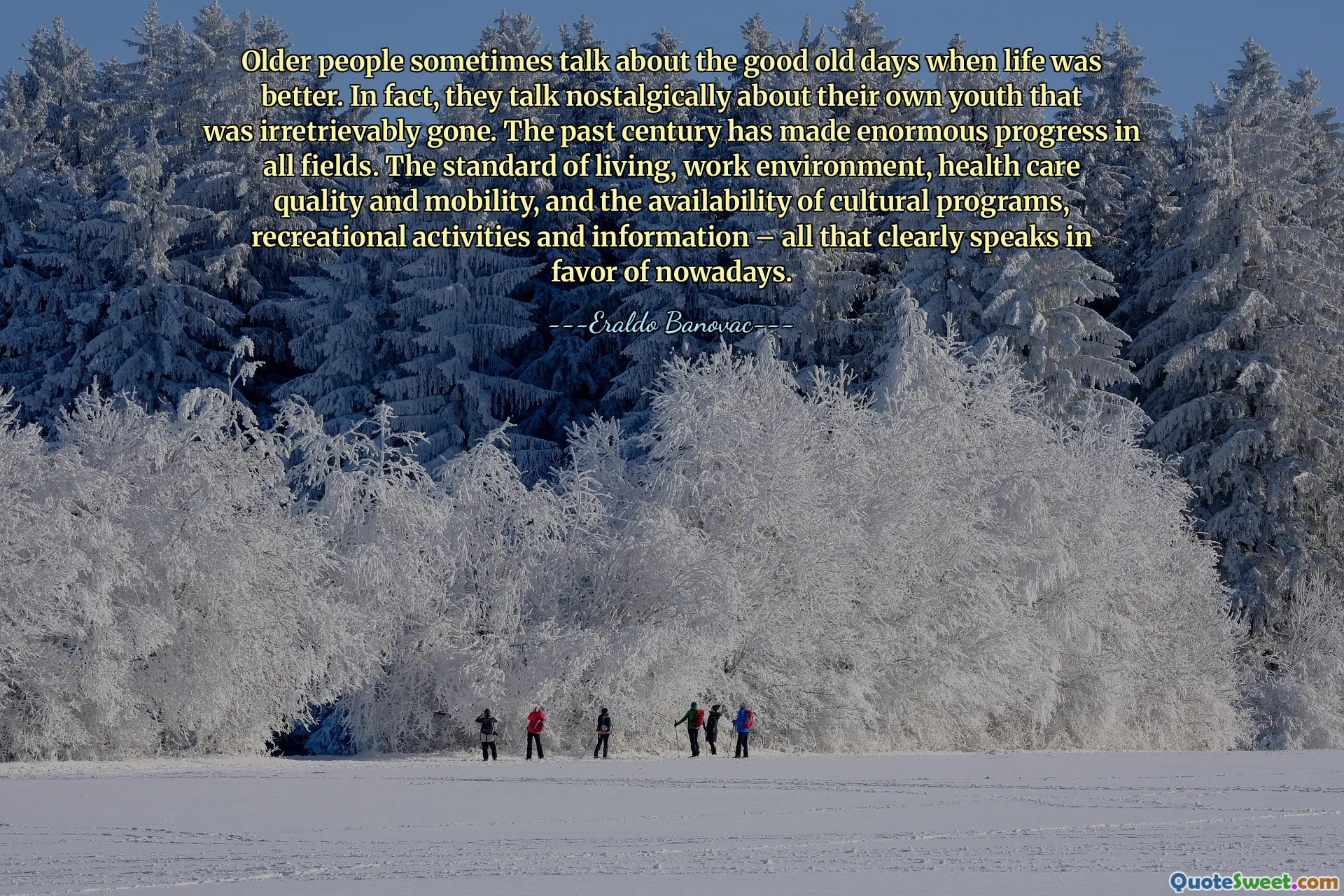
Older people sometimes talk about the good old days when life was better. In fact, they talk nostalgically about their own youth that was irretrievably gone. The past century has made enormous progress in all fields. The standard of living, work environment, health care quality and mobility, and the availability of cultural programs, recreational activities and information – all that clearly speaks in favor of nowadays.
Reflecting on this quote, it becomes evident that nostalgia often clouds objective judgment, especially among older generations who fondly recall their youth. While reminiscing can evoke warm memories, it also risks overlooking the remarkable advancements achieved over the past century. Progress in technology, medicine, education, and cultural accessibility has transformed daily life, often improving the quality of life in ways previous generations could scarcely imagine. For instance, healthcare innovations have significantly increased life expectancy and quality of life, while communication technologies have bridged geographical divides, fostering global interconnectedness. Economic development has lifted many out of poverty, and recreational and cultural opportunities have become more diverse and accessible. Nevertheless, it's natural for people to romanticize the past, especially during times of change or difficulty. The challenge lies in appreciating the present and future innovations without dismissing the value of meaningful memories from the past. Recognizing both the progress and the nostalgia enables a more balanced perspective, appreciating the gains we've made while honoring the personal histories that shape us. Ultimately, history is cumulative, and valuing the achievements of today does not diminish the importance of memories; instead, it broadens our understanding of human development and progress.











